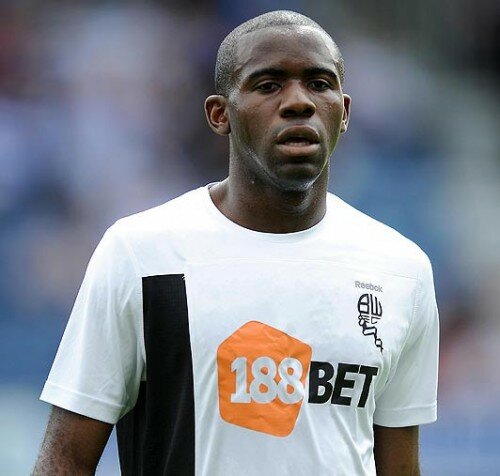 There are certain footballers we like for reasons that have nothing to do with their ability in their chosen profession. Personally, I liked Gary Speed because he reminded me of watching football with my Dad, who passed away a while ago. In my house, my Dad was known for his stock phrases, one of which was ‘I really rate that Gary Speed’, which he trotted out without fail every time Leeds were on telly. It was as though every utterance was a more learned and unique opinion than the last. Increasingly, this phrase was met with howls of derision, but that only seemed to harden his resolve. Yes, there could be no doubting that Gary Speed was indeed ‘rated’, by my Dad.
There are certain footballers we like for reasons that have nothing to do with their ability in their chosen profession. Personally, I liked Gary Speed because he reminded me of watching football with my Dad, who passed away a while ago. In my house, my Dad was known for his stock phrases, one of which was ‘I really rate that Gary Speed’, which he trotted out without fail every time Leeds were on telly. It was as though every utterance was a more learned and unique opinion than the last. Increasingly, this phrase was met with howls of derision, but that only seemed to harden his resolve. Yes, there could be no doubting that Gary Speed was indeed ‘rated’, by my Dad.
So, I was sad when Gary Speed died, because of the nostalgia I attached to his name. But, I couldn’t feel much genuine emotion for Speed, for the simple reason that I didn’t know him. This put me directly at odds with the media reaction to Speed’s death, which can be summarised thus: Speed was a good player and a nice guy, so we should all be shocked, but united in grief. Some handled this collective emotional outpouring more sensitively than others, but when the Daily Telegraph decided to run a ‘live blog’ covering events surrounding Speed’s death, it was hard to maintain any genuine empathy.
In this context, the media avalanche that followed Fabrice Muamba’s heart attack at White Hart Lane at times left me numb. ITV opened their consistently awful FA Cup highlights programme with a painful discussion between presenter Matt Smith and Gordon Strachan. These two are not paid to talk about life and death, so it would be wrong to judge them too harshly. But, what were the show’s producers thinking by having Smith lead Strachan to regale viewers with memories of Jock Stein’s heart attack during a Scotland match?
If it was intended to provide context, it was misjudged; Stein died at the stadium, but Muamba was still fighting for his life. This was followed on Sunday morning by a presenter on BBC Radio Five Live who opened discussions by suggesting it was ‘one of those events that we will all remember where we were when we heard the news’. Framing it in such terms might have seemed appropriate, given the public reaction, but it felt like sensationalism.
Meanwhile, Twitter was full of ‘prayformuamba’ hashtags and requests for ‘RT’ to ‘show our support’. There are two ways to look at this; the first is that it takes little effort to click retweet or to follow an account, so if you care, why wouldn’t you. On the other hand, there’s a nagging feeling that some of this is about being seen to care, rather than actually caring. All of us who use social media have a narcissistic streak. There are degrees of extremity, but it’s there in all of us, otherwise we wouldn’t bother. This undoubtedly compels us to try and influence the way we’re are seen by others, and it can leave you feeling cold, instead of compassionate.
But, leaving this particularly English brand of cynicism to one side (I’m no match for others in this field), Muamba’s recovery is an incredible, miraculous story, and it has given English football some much needed positive news in a season littered with unpleasant, hateful behaviour. Only a couple of weeks ago, Derby County had to apologise for a group of their fans who were mocking the recent death of Nottingham Forest’s owner. What a cruel joke it is that we must share our favoured pastime with sub-pond life levels of intelligence. In this context, it’s not hard to see why fans across the country were so quick to rally around Muamba and celebrate his recovery.
Just looking at the way people have used events in football to dish out hatred this season is enough to make you think seriously about walking away from it. But, despite its many flaws (and there are many), football remains something to be enjoyed. It can still provide experiences that stay with you, and that means something. As memories of childhood start to blur, my recollection of trips to Wembley as a ten year old are vivid. The daunting appearance of the old stadium, the brilliant green of the pitch under flood lights, and my Dad telling me that the Italian fans were ‘calling for Baggio’ during a pre-World Cup friendly against in 1990.
For me, the most powerful thought that followed Muamba’s heart attack was the simple reminder of how fragile human life can be. Imagine how you would feel if someone you cared about suddenly disappeared. No opportunity for goodbye, no chance to revisit your final encounter. Just ‘click’ and the light is turned out forever. It takes some getting used to.
If the fans who preach vicous hatred could pause for a second to think about that, they might stop being so angry and intent on fucking things up for everyone.


Pingback: The best football writing of 2012 « Pele Confidential